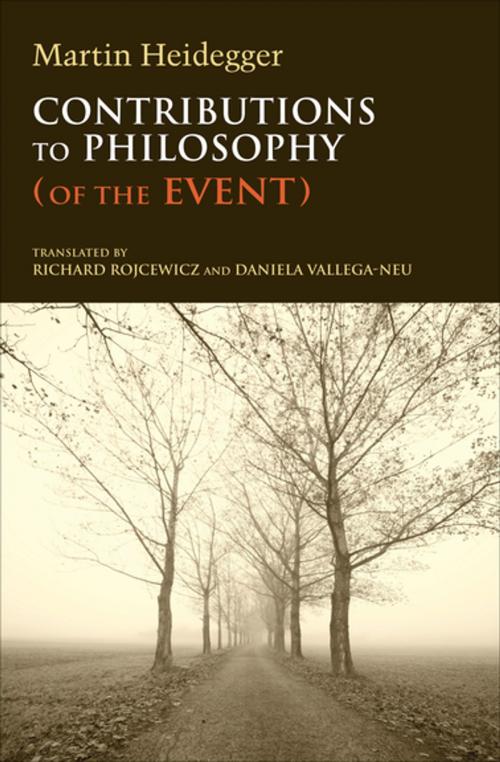Contributions to Philosophy
(Of the Event)
Nonfiction, Religion & Spirituality, Philosophy, Phenomenology| Author: | Martin Heidegger | ISBN: | 9780253001276 |
| Publisher: | Indiana University Press | Publication: | June 11, 2012 |
| Imprint: | Indiana University Press | Language: | English |
| Author: | Martin Heidegger |
| ISBN: | 9780253001276 |
| Publisher: | Indiana University Press |
| Publication: | June 11, 2012 |
| Imprint: | Indiana University Press |
| Language: | English |
Heidegger’s second magnum opus after Being and Time, laying the groundwork for his later writing, in a translation of “impeccable clarity and readability” (Peter Warnek).
Martin Heidegger’s Contributions to Philosophy, written in the late 1930s and published posthumously in 1989, is now widely viewed as his second magnum opus, after Being and Time. Here, Heidegger lays the groundwork for a new conception of thought and being, rooting them both in the event of appropriation. Here, Heidegger establishes the language and intellectual framework necessary for all of his later writings.
Contributions was composed as a series of private ponderings that were not originally intended for publication. They are nonlinear and radically at odds with the traditional understanding of thinking. This translation presents Heidegger in plain and straightforward terms, allowing surer access to this new turn in Heidegger’s conception of being.
Heidegger’s second magnum opus after Being and Time, laying the groundwork for his later writing, in a translation of “impeccable clarity and readability” (Peter Warnek).
Martin Heidegger’s Contributions to Philosophy, written in the late 1930s and published posthumously in 1989, is now widely viewed as his second magnum opus, after Being and Time. Here, Heidegger lays the groundwork for a new conception of thought and being, rooting them both in the event of appropriation. Here, Heidegger establishes the language and intellectual framework necessary for all of his later writings.
Contributions was composed as a series of private ponderings that were not originally intended for publication. They are nonlinear and radically at odds with the traditional understanding of thinking. This translation presents Heidegger in plain and straightforward terms, allowing surer access to this new turn in Heidegger’s conception of being.















